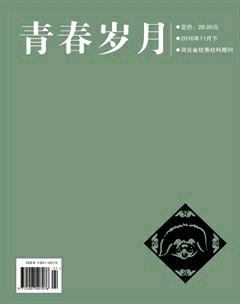The Study on Discourse Pattern of College Argumentative Writing
【摘要】本文试图从语篇层面入手,分析学生在英语写作中无法进行有效交际的原因进而提出了写作教学必须将语言教学与文化认知有机地结合起来,必须激励教师和学生共同努力才能取得长足的进步。
【关键词】议论文;语篇模式;教学反思
Abstract:This paper aims at exploring problems and reasons on discourse level in Chinese college students argumentative writings and putting forward some effective teaching methods.
Key words:argumentative discourse; reasoning pattern;teaching reflections
1. Introduction
For the decades, EFL writing has been overlooked because spoken language has been emphasized too much during the dominance of audio-lingual methodology. In recent years, EFL writing has developed its own theoretical system and became an independent field of study, in which the theories of textual linguistics and contrastive rhetoric are involved. Compared with studies on cohesion and coherence, less studies on English discourse pattern have been done. According to Connor, the reason is that many researchers at home and abroad attach importance to cohesion and coherence after Halliday and Hasan published Cohesion in English.
2. The basic reasoning pattern in argumentation
Argumentation uses language to justify or refute certain standpoint, with the aim of securing agreement. With a claim that is open to challenge, the arguer sets forth evidence to support the claim and quell readers doubts or reluctance. The purpose of argumentation is to convince. Therefore, argumentation is a kind of essay that presents writers viewpoint on the certain phenomenon or problem or belief and criticizes the opposite argument in order to persuade.
3. Causes of the problems in EFL writing
3.1 Differences in English and Chinese language
In different cultures, people have different thinking patterns to view the world, think about the questions and handle things. Because of the differences in geography, environment, ways of life, ways of production, ways of behavior, historical background, political systems, social structure, economic systems, traditional customs, religious beliefs, languages, values, psychological characteristics, philosophy and so on, Chinese and English thinking patterns have totally different features. What EFL learners have to do is to realize the existing differences between these two languages and cultures first and then try to use them flexibly and accurately.
3.2 Present EFL writing teaching
It is widely known that the teaching of English writing for NEMs is not paid a due attention in Chinas colleges. It seems that college English has already been given a great importance in the universities because of required learning hours and strict evaluation system. In fact, there is no particular English writing course opened for NEMs in Chinese universities. It is inserted into an integrated course of English. Therefore, writing is always assigned as a homework activity or an after-class activity.
3.3 Examination-oriented writing
Nowadays, there are various kinds of English exams including IELTS (International Language Testing System), TOFEL (Test of English as a Foreign Language), PETS ( Public English Test System) ,CET (College English Test) and so on. Examination can motivate language learning and writing to a certain degree, but its positive drive is limited. Writing is a process to make use of all the writers thought and application of whole language system, but exams have fossilized this process. Students follow three –paragraph step in writing no matter what the genre is. It may partly explain why most compositions have very similar problems in writings.
4. Pedagogical implications for EFL writing
4.1 Cultivating English thinking pattern
Since language is a part of culture, they are interdependent and related to each other closely and intricately. English and Chinese have their individual and separate language system which is rooted in different behavior, habit and belief. From the narrow aspect, the same word may be used differently and may have different connotation in English and Chinese. From the broad aspect, people who speak English may think and behave oppositely with people who speak Chinese. So it is impossible to organize English writing in the same way as in Chinese.
4.2 Shaking off the shadow of “writing for examinations”
The teaching of English writing in the Chinese context still employs a traditional product and examination-oriented approach with strong emphasis on grammar and vocabulary. Such traditional instructions reflect teachers attempt to meet the needs and wishes of majority of students whose main objectives are not to get writing ability promoted to a higher level but to pass various examinations with higher marks. The most direct and prompt influence of “writing for examinations” is that students struggle to recite, imitate and copy the model writings on the possible topics in tests and form a certain stereotype in thoughts.
4.3 Improving writing teaching strategies
As for teachers, many things can be done in advance such as setting proper writing goal, choosing good topics that arouse students interests, encouraging students to share ideas and giving some instructions or hints. Besides, teachers have to read, revise and polish students writings. The prompt, accurate and complete feedback is an effective prescription to enhance students writings. In addition, teachers should adopt appropriate evaluation methods to improve work efficiency and effects. Not every mistake or error is as fatal as to destroy the whole writing. Encouraging students to take interest in writing is as important as writing itself.
基金项目:本文系2015年“内蒙古高校外国语言文学教学研究专项课题”研究成果,项目编号:WYZX2015-02
【References】
[1] Connor, U. Contrastive Rhetoric: Cross-cultural Aspects of Second Language Writing[M]. New York: Cambridge University Press, 1996.
[2] Harris, Z. Discourse Analysis[J]. Language 28, 1952: 1-30.
[3] Hoey, M. Textual Interaction: an Introduction to Written Discourse Analysis[M]. London: Routledge, 2001.
【作者简介】
韩敏(1980—),女,内蒙古工业大学外国语学院副教授,主要研究方向:跨文化研究、英语教学法。

